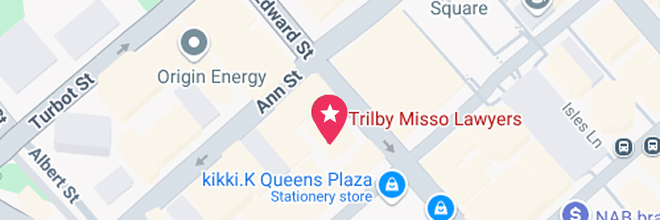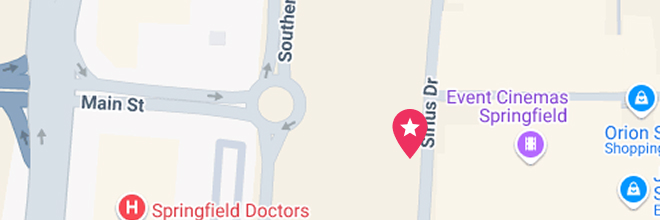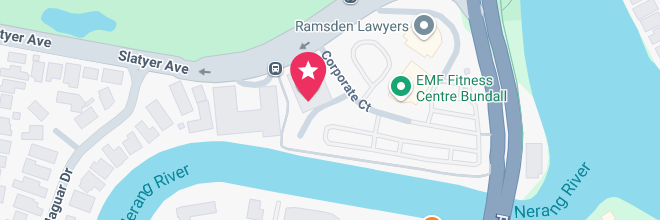Our Brisbane CBD Office
- Suite 400, Level 4/288 Edward St, Brisbane City QLD 4000
- (07) 3910 5470




Stress leave — also known as mental health leave — is time away from work taken when an employee is struggling with psychological stress that’s affecting their ability to function at work. In Australia, stress leave is generally taken as personal (sick) leave under the Fair Work Act, rather than being a separate leave type. But when workplace stress leads to more serious mental health conditions like anxiety, depression, or burnout, there may also be legal options for seeking compensation.
At Trilby Misso Lawyers, we specialise in psychological injury claims through WorkCover Queensland, supporting individuals who’ve experienced mental health issues due to unsafe, toxic, or traumatic work environments. If your stress has gone beyond needing a few days off, and you believe your employer’s actions or conditions at work have contributed to your decline in wellbeing, it may be time to explore whether you’re eligible for a common law compensation claim.
This guide explains the essentials around stress leave in Australia — from eligibility, to how to apply, and what to do if your situation may warrant a WorkCover claim for psychological injury. We’ll also clarify the difference between general stress leave and when it crosses into a legal matter under workers’ compensation law.
If you’re unsure of your rights or next steps, Trilby Misso Lawyers offers a free consultation to help you understand your options and whether you have grounds for a claim.
Stress leave, also known as mental health leave, refers to time away from work taken due to significant mental or emotional strain that affects your ability to perform your job. In Australia, stress leave isn’t a standalone category of leave. Instead, it typically falls under the umbrella of sick leave, or personal leave, as outlined in the Fair Work Act 2009.
This type of leave is generally used when work-related stress leads to a decline in mental or physical health. Common causes include:
Taking stress leave is a vital step in prioritising mental health. Ignoring chronic stress can lead to serious conditions such as depression, anxiety disorders, or physical health complications. It’s important for both employees and employers to recognise that mental health is just as important as physical health — and that workers are legally entitled to take leave when they’re unfit for work due to stress-related conditions.
If your GP, psychologist or psychiatrist believes your condition is impacting your ability to work, they can issue a medical certificate recommending time off.
While the term “stress leave” is often used informally, it’s important to understand how it fits into Australia’s broader workplace leave structure. Depending on your situation, stress-related leave may be taken as:
In certain situations, a workers’ compensation claim may be more appropriate than taking standard leave. This is typically the case when a psychological injury — such as severe anxiety or depression — is caused by workplace conditions, like bullying, excessive workloads, or traumatic events on the job. In those instances, stress leave may fall under a workplace injury and require a separate process through your state’s workers’ compensation authority, such as WorkCover Queensland.
Here’s a basic breakdown to help differentiate:
| Leave Type | When It’s Used | Entitlement |
| Sick/Personal Leave | When stress affects your ability to work | Usually 10 days per year (FT) |
| Annual Leave | If stress persists and you’ve exhausted sick leave | 4 weeks per year (FT) |
| Unpaid Leave | No accrued leave but medical certificate supports absence | Subject to employer approval |
| Workers’ Compensation | If stress is caused directly by workplace factors | Lodged through WorkCover/Comcare |
Understanding which path is right for you depends on the cause of your stress, your leave balance, and whether the situation qualifies as a psychological workplace injury.
To take stress leave from work, you must be considered unfit for work due to a mental health condition such as anxiety, depression, or chronic stress. In Australia, stress leave is treated as sick leave, which falls under the National Employment Standards (NES) within the Fair Work Act 2009.
You’re generally eligible if:
Your certificate should clearly state that you’re unfit for work. While it doesn’t have to disclose specific details of your condition, it must confirm that your mental health makes you unable to perform your usual duties.
In some cases, employees may also be able to access:
If your stress is linked to workplace conditions — like bullying, harassment or overwork — you might also be eligible to lodge a psychological injury claim under your state’s workers’ compensation scheme.
A common question we hear is: “How long can you take off work for stress leave?”
In most cases, the amount of stress leave you can take is based on your accrued sick leave balance. Under the Fair Work Act:
The length of leave is also determined by your medical practitioner, who will assess your condition and note the required leave period on your certificate.
If you’ve used up your paid sick leave, your options may include:
It’s worth noting that the Fair Work Commission and the courts typically view stress-related absences seriously when supported by medical evidence.
You may also ask:
How long can you be on stress leave in Australia?
Can I take time off from work due to stress?
Do you get paid for stress leave in Australia?
The short answer: Yes, if you have accrued sick leave, it is paid just like regular sick leave. Once it runs out, annual or unpaid leave may be your next option, depending on the circumstances.
While the Fair Work Act applies nationally, there are some additional points for employees in Queensland.
Here’s what you need to know if you’re looking to take stress leave in QLD:
You can learn more via the Queensland Government’s WorkCover site: https://www.worksafe.qld.gov.au
If your claim is denied, or if your employer refuses your stress leave request despite valid medical backing, you may have grounds to challenge their decision under employment law.
Is stress leave paid in QLD?
Yes — if you have sick leave available, it is paid leave. If you claim workers’ compensation, your payments are managed through WorkCover QLD after approval.
If you’re feeling overwhelmed and wondering how to take stress leave from work, it’s important to know the process is straightforward — but it does need to be done properly.
Here’s a step-by-step breakdown of what to do:
Step 1: Visit Your GP or Mental Health Professional
Book an appointment with your doctor, psychologist, or psychiatrist. Be honest about your symptoms, how your mental health is being affected by your work, and how long it’s been going on.
If they agree that your condition is impacting your ability to work, they’ll issue a medical certificate stating that you are unfit for work.
People also ask:
What do I say to my doctor to get stress leave Australia?
It’s best to be upfront — describe how your job is affecting your sleep, mood, energy, concentration, or physical health.
Step 2: Notify Your Employer
Let your manager or HR team know as soon as possible. You don’t need to provide personal details about your condition — just the certificate stating you’re unfit for work.
Legally, you’re not required to go into the specifics of your diagnosis.
Step 3: Discuss Leave Options
If you have accrued personal leave, this is usually used first. If not, you can talk to your employer about using:
Some workplaces may also offer Employee Assistance Programs (EAPs) to support your recovery.
Step 4: Follow Workplace Policy
Every company has its own internal process for leave applications. Be sure to:
Step 5: Maintain Communication
While on leave, it may help to stay in limited contact with your employer, especially if there’s a need to extend your time off. Keep any additional certificates updated and ask your doctor to clearly state the duration of leave required.
If you’re searching “how do I ask for stress leave”, the answer is:
Speak to your GP first, then provide your employer with a valid certificate — no need to justify or explain beyond that.
3.2 What to Do If Your Stress Leave Request is Denied
Under Australian law, an employer cannot lawfully deny stress leave if you’ve:
However, it does happen. In some cases, employers question the certificate, delay approving leave, or apply pressure on the employee to keep working.
If this happens:
Stress leave is your right under the Fair Work Act, and refusal without proper cause could be grounds for an unfair dismissal or discrimination claim.
At Trilby Misso Lawyers, we assist individuals who have suffered psychological injuries due to their work. If your mental health has been impacted by workplace conditions and you’re considering a compensation claim through WorkCover QLD, our team can help you understand your legal rights and whether you may be eligible for a common law claim.
If you’re wondering how stress leave fits into Fair Work entitlements, the key thing to understand is that stress leave is treated as sick leave under the National Employment Standards (NES).
Under the Fair Work Act 2009, all permanent employees in Australia are entitled to:
Stress leave falls under this category if you’re unfit for work due to a psychological or emotional condition, such as anxiety, burnout, or depression. You will need a medical certificate to validate your need for time off.
If you’re using stress leave as carer’s leave — for example, if a close family member is suffering from a mental health condition — this is also covered under the Fair Work Act.
Here’s a quick overview:
| Leave Type | Entitlement | Valid For Stress Leave? |
| Sick leave | 10 days/year (FT) | Yes, with medical certificate |
| Carer’s leave | Same entitlement as sick leave | If caring for a family member |
| Annual leave | 4 weeks/year (FT) | If sick leave is exhausted |
| Unpaid leave | Employer discretion | Case-by-case basis |
To explore more, visit: https://www.fairwork.gov.au/leave/sick-and-carers-leave/paid-sick-and-carers-leave
You may ask:
Do you get paid for stress leave in Australia?
Yes — if you have accrued sick leave, it is paid. Once it’s exhausted, other leave types may apply.
If your stress leave from work is denied or mishandled by your employer, you may have several options under Fair Work Australia’s dispute resolution mechanisms.
Some common issues that may arise:
If this happens:
Your rights are protected under several key areas of Australian workplace law:
If you’ve searched “stress leave – Fair Work Australia” or “can my boss deny my stress leave?” — the short answer is no, not without very good reason backed by evidence.
If your mental health condition has been directly caused by your workplace, you might be entitled to more than just time off — you may be eligible to lodge a workers’ compensation claim for psychological injury.
This is different from standard sick leave. Workers’ compensation for stress or mental health is available when your condition is deemed to be work-related, and is generally referred to as a psychological injury under Australian law.
You may be able to claim if your stress is caused by:
To make a claim, you’ll need to:
Keep in mind: A claim may be denied if the stress is deemed to arise from reasonable management action, such as performance reviews or disciplinary processes, done in a reasonable way.
In Queensland, psychological injury claims are handled by WorkCover Queensland. If accepted, workers may receive:
| Psychological Condition | Description |
| Post-Traumatic Stress Disorder (PTSD) | Triggered by exposure to trauma, often seen in first responders or after serious workplace incidents. |
| Depression | Work-related pressures, toxic environments, or prolonged stress may contribute to diagnosable depression. |
| Anxiety Disorders | Conditions like Generalised Anxiety Disorder may arise from high-pressure or unsafe work environments. |
| Adjustment Disorder | A strong emotional or behavioural reaction to sudden work changes or stressful events. |
| Workplace Factor | Description |
| Ongoing work-related stress | Constant high pressure or unrealistic expectations can wear down mental health over time. |
| Exposure to traumatic events | Single incidents or repeated exposure (especially in emergency or healthcare roles). |
| Bullying or harassment | Persistent targeting, exclusion, or verbal abuse by colleagues or managers. |
| Excessive hours or lack of breaks | Long shifts without proper rest can severely affect psychological wellbeing. |
| Workplace intimidation | Being threatened, micromanaged, or unfairly criticised on a regular basis. |
| Physical injury at work | Serious injuries can lead to PTSD or anxiety, especially if recovery is difficult. |
People also ask:
Can I get WorkCover for stress?
Yes — if your condition is work-related and properly diagnosed, you may be eligible for workers’ compensation for stress leave QLD.
Being dismissed while on stress leave — or after taking it — can be unlawful, depending on the circumstances. Under Australian law, if you’ve followed the correct process (provided medical evidence and taken approved leave), your employer cannot dismiss you simply for being unwell.
You may have grounds for an unfair dismissal claim if:
Here’s what you can do:
In some cases, termination may also breach the general protections provisions of the Fair Work Act — especially if it relates to the exercise of your workplace rights or discrimination on the basis of mental health.
You may also ask:
What happens if you take stress leave from work and get fired?
That may be unlawful. If your leave is supported by a medical certificate, dismissal could amount to unfair dismissal or adverse action.
If you believe you’ve been treated unfairly after taking stress leave, Trilby Misso Lawyers can help you explore your legal rights and determine whether a claim can be made under workers’ compensation law.
If your mental health condition has developed due to the nature of your job — whether it’s ongoing stress, workplace trauma, bullying, or a toxic environment — you may be entitled to more than just time off. In some cases, you may have the right to pursue a common law personal injury claim through the workers’ compensation system.
At Trilby Misso Lawyers, we specialise in helping Queenslanders navigate the legal side of psychological injury claims, particularly when the condition has been caused by the workplace and extends beyond a simple sick leave matter.
You might be eligible to pursue a common law claim if:
In these cases, a successful common law claim may offer:
It’s not always clear whether your situation qualifies — especially when dealing with mental health conditions that have built up over time. That’s why it’s important to speak with a legal team that understands the complexities of psychological injury law in Queensland.
At Trilby Misso Lawyers, we’re experienced in handling stress-related claims and can:
If your workplace stress has become more than you can handle — and you believe your employer’s actions or inaction contributed to your condition — a personal injury claim might be worth exploring.
We offer a free consultation to discuss your situation and help you understand your legal rights. All claims are handled on a no win, no fee basis, with a focus on ensuring you receive the support and compensation you deserve.
If you’re a full-time employee in Australia, you’re entitled to 10 days of paid personal leave each year, which includes stress leave. The length of time off will depend on your medical certificate and leave balance.
Be honest and explain how your work is affecting your mental health, including symptoms like anxiety, exhaustion, or trouble sleeping. Your doctor will assess your condition and may issue a certificate if they believe time off is needed.
Yes — stress leave is usually paid if you have accrued sick leave. If your condition is work-related, you may also be eligible for workers’ compensation through WorkCover QLD.
For more information on your rights and entitlements related to stress leave in Australia, check out the following government resources:
Taking stress leave isn’t just about stepping away from work — it’s about recognising the importance of your mental health and understanding your rights under Australian law. Whether you’re dealing with burnout, anxiety, or workplace-related stress, knowing how to apply for leave, what documents you need, and when you may be eligible for workers’ compensation is essential.
In Queensland, stress leave is typically treated as paid personal leave, but if your condition is caused by the workplace, you may have grounds for a psychological injury claim. At Trilby Misso Lawyers, we focus on common law personal injury claims and can guide you through the legal process if WorkCover is involved.
If you believe your mental health has been affected by your work environment, don’t wait. Reach out for a free consultation — we’ll help you explore your options and ensure your legal rights are protected.

Kathryn is Trilby Misso’s Chief Executive Officer.
Meet KathrynUse this simple online tool and find out if you have a claim in less than thirty seconds. You can choose to remain anonymous.
Your next step is a small one. All you need to do is give us a call on 07 3910 5470 or complete this form here to arrange a quick chat.
During this initial conversation, we will:

We understand that taking legal action can be stressful, and we’ll do all we can to ease your concerns.
The chat can take place at our place, your place, or by phone. There is no cost, no pressure, and no obligation.
Call 07 3910 5470 or fill out this form, and we’ll get back to you within 2 hours (during business hours). We look forward to meeting you.
enquire now